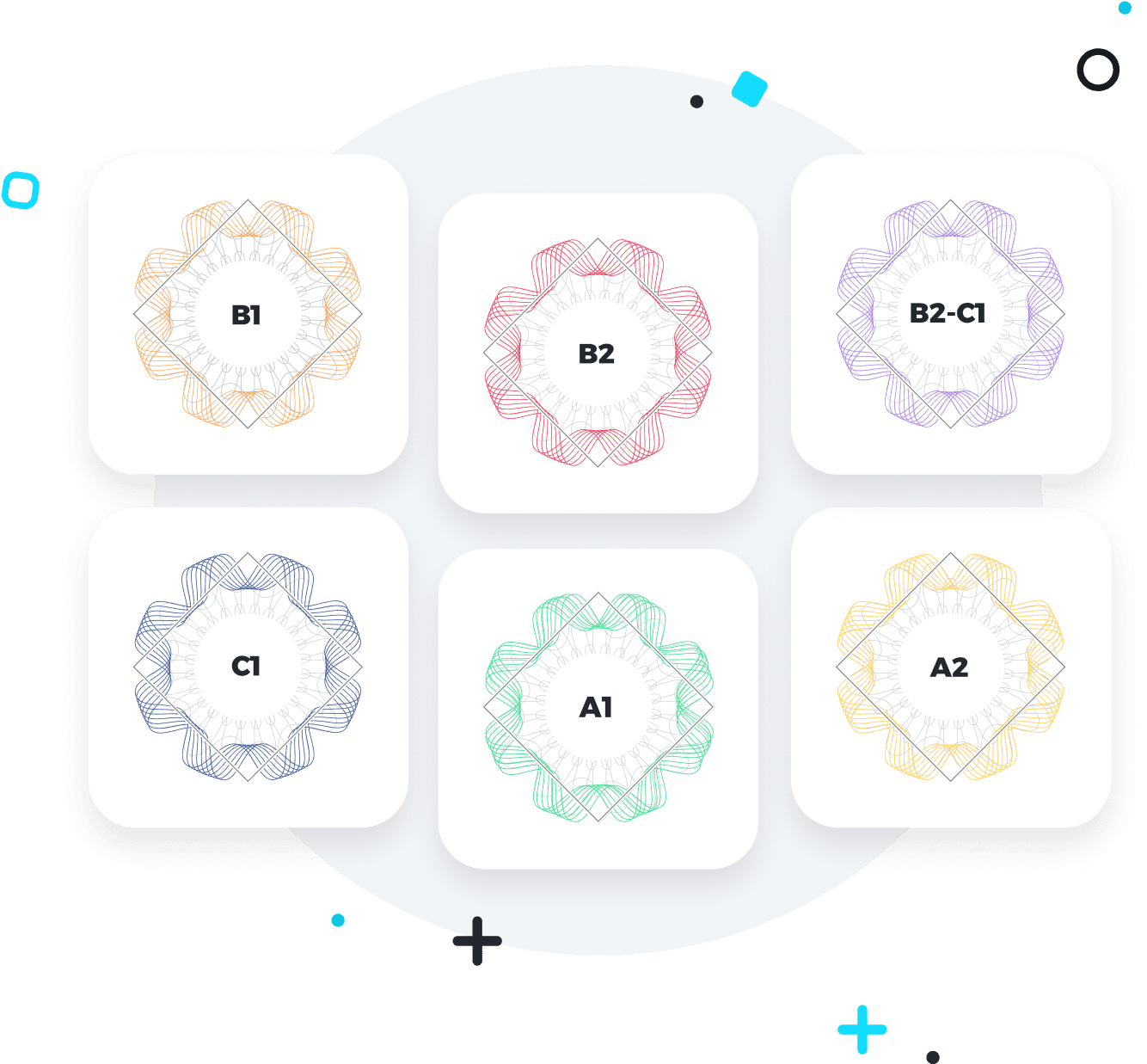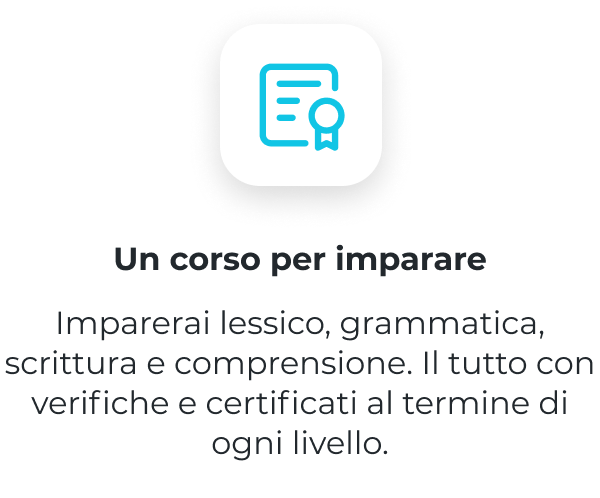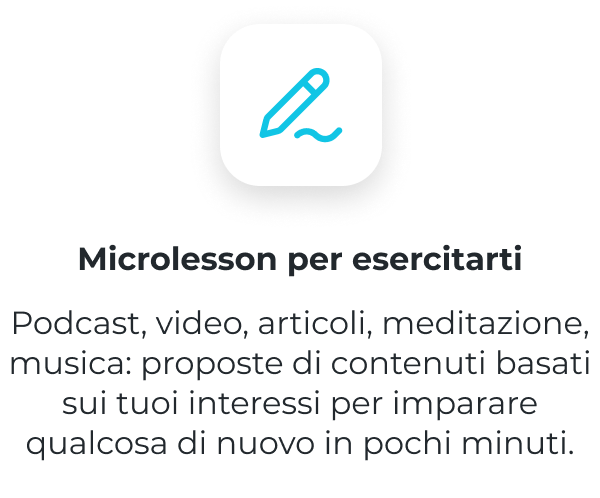Periodo ipotetico in inglese
Impara tutto ciò che devi sapere sul condizionale in inglese in questo articolo con esempi ed esercizi. Registrati gratis ad ABA English e goditi ogni giorno una nuova video lezione di grammatica gratuita
Cos’è il perido ipotetico in inglese e quando si usa?
Il condizionale è ampiamente usato in inglese, anche se potrebbe sembrare che non sia comune nella nostra comunicazione quotidiana. Fondamentalmente un condizionale è una struttura grammaticale che ci permette di esprimere qualcosa che accade in base al fatto che una condizione venga soddisfatta o meno.
Quanti tipi di condizionale ci sono in inglese? Ci sono quattro tipi di condizionale in inglese, ciascuno relativo a qualcosa che potrebbe accadere (nel presente o nel futuro) o potrebbe essere accaduto (in passato). Ti sei mai pentito di qualcosa? In tal caso, sicuramente hai usato un condizionale per esprimere il tuo rammarico. Guarda questi esempi:
Esempi:
- If I had not lost my wallet, I would have all my documents. (Se non avessi perso il portafoglio, avrei tutti i miei documenti..)
- If they had attended the course, they would have learnt how to paint. (Se avessero frequentato il corso, avrebbero imparato a dipingere.)
+30 MILIONI DI STUDENTI
Unisciti all’accademia digitale d’inglese più
grande del mondo e impara l’inglese
Tipi di condizionale
Zero Conditional
Il zero conditional si usa per parlare di verità assolute o situazioni reali e possibili.
Per costruirlo, si usa la seguente struttura:
If + soggetto + verbo al present simple, soggetto + verbo al present simple
Come vedi, i verbi di entrambe le clausole sono al present simple.
Esempi:
- If you fall, you get hurt. (Se cadi, ti fai male.)
- If you walk under the rain, you get wet. (Se cammini sotto la pioggia, ti bagni.)
First Conditional
Il first conditional si usa per parlare di una possibile condizione e di un probabile risultato futuro.
Per formarlo, si usa la seguente struttura:
If + soggetto + verbo al present simple, soggetto + will/won’t + verbo all’infinitivo
In questo caso, il verbo della clausola di condizione è al present simple, mentre il verbo della clausola di risultato è al futuro con will.
Esempi:
- If they pay me for the project, I will buy a new car. (Se mi pagano per il progetto, comprerò una macchina nuova.)
- If they get some days off, they will visit us. (Se hanno qualche giorno libero verranno a trovarci.)
Second Conditional
Il second conditional si usa quando ci sono poche possibilità che succeda qualcosa.
Per formarlo, si usa la seguente struttura:
If + soggetto + verbo al past simple, soggetto + would/wouldn’t + verbo all’infinitivo
In questo caso, il verbo della clausola di condizione è al past simple, mentre la clausola di risultato è con il verbo modale would seguito dal verbo all’infinito.
Esempi:
- If he were more organized, he would give better outcomes. (Se fosse più organizzato avrebbe risultati migliori.)
- If they were rich, they would travel the world.(Se fossero ricchi, viaggerebbero per il mondo).
Third Conditional
Il third conditional si usa per parlare del passato in situazioni di rimpianto.
Per formarlo, si usa la seguente struttura:
If + soggetto + verbo al past perfect, soggetto + would/wouldn’t have + participio pasado del verbo
In questo caso, il verbo della clausola di condizione è al past perfect, mentre la clausola di risultato è nel modale would/wouldn’t have seguito dal participio passato del verbo.
Esempi:
- If you had listened to me, you would have saved your tears. (Se mi avessi ascoltato, non avresti pianto tanto.)
- She would have played better if she had trained every day. (Lei avrebbe giocato meglio se si fosse allenata ogni giorno.)
Sai già qual è il tuo livello d’inglese?
Fai subito un test
Registrati nella nostra pagina e accedi gratuitamente al test di livello. Scoprirai il tuo punto di partenza in pochi minuti e potrai continuare ad avanzare con il corso.

Esercizi sul periodo ipotetico in inglese
Esercizi con il zero conditional
Esercizio con il zero conditional in frasi affermative
Completa le seguenti frasi affermative con il zero conditional.
- If Tony _______________ (wake up) at 7 a.m., he ________ (be) grumpy.
- If I ______________ (go) late to bed, I _________ (feel) terrible the next day.
- Anna ___________ (miss) her friend if she doesn’t _________ (see) her for a week.
Risposte:
- wakes up / is
- go / feel
- misses / see
Esercizio con il zero conditional in frasi negative
Forma frasi negative al zero conditional utilizzando gli elementi dati.
- I / not call my mom / she / get upset.
- You / not drink soda / be healthy.
- She / clean the house / not do laundry.
Risposte:
- If I don’t call my mum, she gets upset.
- Don’t drink soda if you want to be healthy.
- If she cleans the house, she doesn’t do the laundry.
Esercizio con il zero conditional in frasi interrogative
Traduci le seguenti frasi interrogative in inglese usando il zero conditional.
- A che ora ti svegli se devi andare all’università?
- Cosa ti piace fare se hai tempo libero?
- Dove va Ana se deve fare esercizio?
Risposte:
- What hour do you wake up if you have to go to university?
- What do you like to do if you have free time?
- Where does Ana go when she has to exercise?
Esercizi sul first conditional
Esercizio con il first conditional in frasi affermative
Completa le seguenti frasi affermative con il first conditional.
- We ___________ (visit) Doha if we ___________ (travel) to Qatar.
- If you ___________ (give) your mom a present, she _________ (be) very happy.
- Mary ___________ (buy) a new house if she ___________ (get) a good job.
Risposte:
- will visit / travel
- give / will be
- will buy / gets
Esercizio con il first conditional in frasi negative
Traduci le seguenti frasi negative in inglese usando il first conditional.
- Se non studi, non supererai l’esame.
- Alex non andrà al parco se non smette di piovere.
- Se John non si sbriga, non prenderà l’aereo.
Risposte:
- If you don’t study, you will not pass the exam.
- Alex won’ go to the park if the rain doesn’t stop.
- If John doesn’t hurry up, he will not catch the plane.
Esercizio con il first conditional in frasi interrogative
Completa le frasi con la coniugazione verbale appropriata per creare frasi interrogative con il first conditional.
- If I _________ (pay) for the tickets, ________ (go/you) with me to the concert?
- __________ you (buy) her an ice cream if she__________ (win) the first place?
- If John __________ (ask) you how to apply, __________you (help) him?
Risposte:
- paid / would you go
- Would you buy / won
- asked / would you
Esercizi con il second conditional
Esercizio con il second conditional in frasi affermative
Traduci in inglese le seguenti frasi con il second conditional.
- Se trovassi lavoro, comprerei una macchina.
- Se pagassi le bollette in tempo, non avresti problemi.
- Se avessi più tempo, verrei alla tua festa di compleanno.
- Se fossero più gentili, sorriderebbero.
Risposte:
- If I got the job, I would buy a car.
- If you paid your bills in time, you wouldn’t have problems.
- If I had more time, I would come to your birthday party.
- If they were nicer, they would smile.
Esercizio con il second conditional in frasi negative
Coniuga i verbi tra parentesi per creare frasi negative al second conditional.
- We __________ (not got) to the concert, if we __________(not buy) the tickets,
- If you ___________ (not turn off) the TV, you ____________ (not missed) the interview.
- If Luke ____________ (not have) money, he __________ (not live) in a mansion.
- I ____________ (not buy) jewelry if I ____ (have) more money.
Risposte:
- won’t go / don’t buy
- don’t turn off / won’t miss
- didn’t have / wouldn’ live
- will not / have
Esercizio con il second conditional in frasi interrogative
Create second conditional interrogative sentences with the following elements.
- You look taller. You used big shoes
- Sue lives in Seattle. She took the ferry to work.
- We have a discount. We were at the restaurant
- I have a good job. I live in a mansion
Risposte:
- Would you look taller if you used big shoes?
- Would Sue take the ferry to work if she lived in Seattle?
- Would we have a discount if we were at the restaurant?
- Would I live in a mansion if I had a good job?
Esercizi con il third conditional
Esercizio con il third conditional in frasi affermative
Scegli l’opzione corretta per formare le frasi al third conditional.
1. If we _________for the test, we could have passed.
a. had studied
b. have studied
c. had study
2. She could ____________ if she had worked harder.
a. has gone
b. have gone
c. had gone
3. If they __________ the news, they might have known.
a. would have read
b. have read
c. had read
4. If I _____________ this was boring, I would have seen a different episode.
a. had known
b. could have known
c. knew
Risposte:
1.a / 2.b / 3.c / 4.a
Esercizio con il third conditional in frasi negative
Traduci in italiano le seguenti frasi negative al third conditional.
- If I had not practiced, I would not have passed the exam.
- Andy would not have gone to the match if she had not had the tickets.
- If they had not been ill, they would have gone to the cinema.
- If I had not come to Brooklyn, I would not have met you.
Risposte:
- Se non mi fossi esercitato, non avrei superato l’esame.
- Andy non sarebbe andato alla partita se non avesse avuto i biglietti.
- Se non fossero stati malati, sarebbero andati al cinema.
- Se non fossi venuto a Brooklyn, non ti avrei incontrato.
Esercizio con il third conditional in frasi interrogative
Riscrivi le seguenti frasi al third conditional nella forma interrogativa.
- You had known about the party. You told me.
- They had won the competition. They have bought something.
- I had known about her. I have stayed.
- He had caught the bus. He has called you.
Risposte:
- Would you have told me if you had known about the party?
- If they had won the competition, what would they have bought?
- If I had known about her, would I have stayed?
- Would he have called you if he had caught the bus?
Altri link utili
- Grammatica inglese
- Aggettivi in inglese
- Aggettivi comparativi in inglese
- Aggettivi dimostrativi: This, that, these, those
- Aggettivi irregolari
- Aggettivi possessivi in inglese
- Aggettivi superlativi in inglese
- Avverbi in inglese
- Forma passiva in inglese
- Periodo ipotetico in inglese
- Zero conditional in inglese
- First conditional in inglese


























